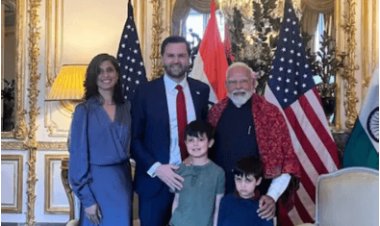Elon Musk says he is an alien: ‘I keep saying it but no one believes me’
Elon Musk says he is an alien: ‘I keep saying it but no one believes me’

Elon Musk says he is an alien: ‘I keep saying it but no one believes me’
In a recent interview, Elon Musk, the enigmatic CEO of Tesla and SpaceX, made yet another intriguing and provocative statement: he claims to be an alien. This declaration, while likely tongue-in-cheek, has fueled widespread speculation and interest, encapsulating the blend of eccentricity and brilliance that characterizes Musk's public persona.
During an appearance on a popular podcast, Musk was asked about his relentless drive and seemingly superhuman ability to juggle multiple high-stakes ventures simultaneously. In response, he quipped, "I keep saying it but no one believes me—I'm actually an alien." The comment was delivered with a wry smile, leaving listeners to ponder whether Musk was serious or simply indulging in his well-known penchant for humor.
This isn’t the first time Elon Musk has made headlines with his unconventional statements. Known for his unfiltered Twitter presence, Elon Musk has previously commented on everything from colonizing Mars to the dangers of artificial intelligence, often blurring the lines between serious discourse and playful banter. His latest claim of being an alien fits neatly into this pattern, serving to captivate and perplex audiences in equal measure.
The reaction to Elon Musk statement was swift and varied. Social media platforms lit up with debates and jokes, with hashtags like #ElonAlien and #MuskFromMars trending globally. Memes depicting Musk as an extraterrestrial being flooded Twitter and Instagram, showcasing the internet’s ability to transform even the most outlandish remarks into viral content.
Media outlets, meanwhile, approached the statement with a mixture of skepticism and intrigue. Some publications treated it as a humorous aside, while others speculated on the deeper meaning behind Musk’s words. Commentators suggested that Musk might be using the alien narrative as a metaphor for his outsider status in the business world or his futuristic vision for humanity.
Elon Musk’s fascination with space and science fiction is well-documented. As the driving force behind SpaceX, he has often cited science fiction as a major influence on his ambitions. Musk’s vision of making life multi-planetary and his efforts to develop reusable rockets are straight out of the pages of classic sci-fi novels. His statement about being an alien could be seen as an extension of this fascination, positioning himself as a visionary whose ideas are otherworldly.
Interpreting Elon Musk claim metaphorically, it reflects his unique approach to innovation. Musk has consistently defied conventional wisdom, pursuing bold and often risky ventures that others might deem impossible. From electric cars to space travel, Musk’s projects are characterized by a willingness to think beyond the limits of current technology and societal norms. By likening himself to an alien, he may be underscoring his role as an innovator who operates outside traditional boundaries.
Despite the playful nature of Musk’s comment, it raises important questions about how we perceive and respond to visionary thinkers. Elon Musk ventures, while ambitious, are grounded in rigorous scientific research and engineering. His work at SpaceX, for example, has achieved significant milestones, such as the successful landing and reuse of orbital rockets. Tesla, under his leadership, has revolutionized the automotive industry with its electric vehicles and advancements in autonomous driving technology.
Elon Musk claim of being an alien might also highlight the isolation that can accompany radical innovation. Visionaries often face skepticism and resistance from those who are comfortable with the status quo. By framing himself as an alien, Musk could be expressing the sense of being misunderstood or not fully accepted by mainstream society.
Elon Musk’s statement also invites us to consider the broader implications of his work. If we take his metaphor seriously, it suggests that humanity’s future may indeed require a break from conventional thinking. As we confront global challenges such as climate change, resource depletion, and technological disruption, innovative solutions will be essential. Musk’s endeavors in renewable energy, space exploration, and artificial intelligence represent efforts to address these issues on a grand scale.
Furthermore, Elon Musk playful assertion taps into a deep-seated cultural fascination with extraterrestrial life and the unknown. Throughout history, the idea of aliens has captured the human imagination, symbolizing both our fears and hopes about the future. Musk, by positioning himself within this narrative, aligns his personal and professional journey with humanity’s age-old quest for knowledge and advancement.
Elon Musk’s claim of being an alien is likely a humorous and metaphorical statement reflecting his unique position as a visionary and disruptor. While it has generated a flurry of social media activity and media speculation, it also underscores the unconventional approach that has defined his career. Whether taken literally or not, Musk’s words invite us to reconsider our perceptions of innovation and the individuals who drive it.
As we navigate an era of rapid technological change, figures like Musk challenge us to look beyond the familiar and embrace the possibilities of the unknown. In doing so, they remind us that progress often requires a willingness to explore new frontiers—whether they lie within our own world or beyond it.

 shivani
shivani 



